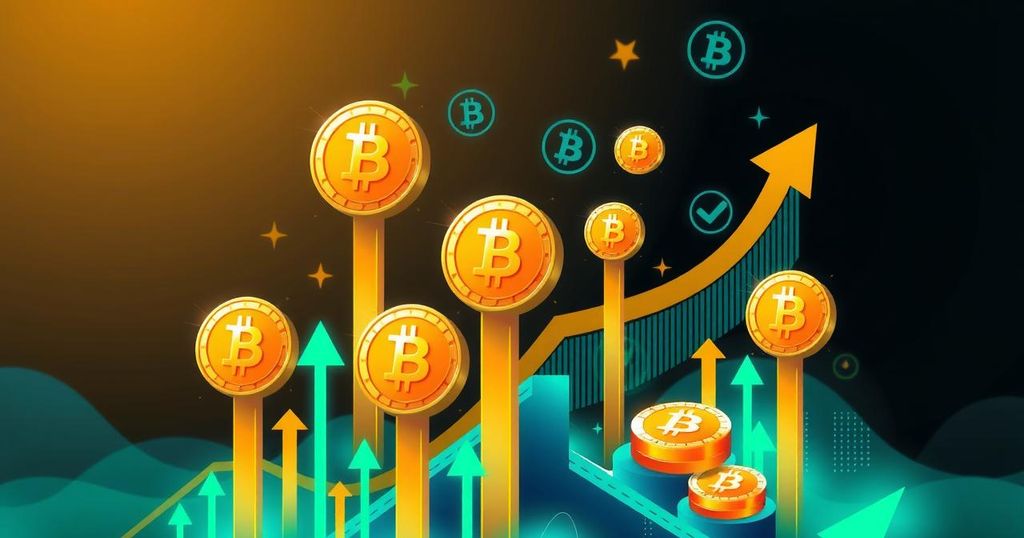Bitcoin Surges to $96,978 as New Hampshire Enacts Groundbreaking Crypto Bill
Bitcoin’s value soared to $96,978 amid optimism over US-China trade talks. New Hampshire passed HB 302, allowing state investments in cryptocurrencies and precious metals, with Bitcoin qualifying based on its market cap. Governor Ayotte highlighted the bill’s significance, reflecting growing interest in alternative assets amidst shifting monetary policies.
Bitcoin’s price saw a notable increase on Wednesday, climbing to about $96,978. Earlier in the day, it even flirted with crossing the $97,000 mark. This price surge seems to be closely tied to an increasing wave of optimism surrounding trade discussions between the United States and China, set to take place later this week.
The uptick in Bitcoin’s value, reflecting a 0.17% rise, is largely driven by positive market sentiment due to the anticipated US-China talks on Saturday and Sunday. Notably, US Treasury Secretary Scott Bessent commented on the importance of reexamining existing tariffs and trade barriers, while emphasising the United States’ commitment to avoiding a complete economic decoupling from China.
Adding fuel to the cryptocurrency fire is New Hampshire’s recent legislative move, where Governor Kelly Ayotte signed bill HB 302 into law on Tuesday. This legislation positions New Hampshire as the first state in the US to establish a cryptocurrency reserve, an unusual step for state financial management. Ayotte took to X, formerly Twitter, to proudly state, “New Hampshire is once again First in the Nation!”
The new law allows New Hampshire to invest a portion of its public funds—up to 5%—in selected digital assets along with precious metals like gold and silver. In order to qualify, cryptocurrencies must have had a market capitalisation of at least $500 billion in the previous calendar year, which narrows the field down to Bitcoin alone.
State Representative Keith Ammon weighed in on the motivations behind the bill, stating that adverse federal monetary policies have spiked interest in alternative asset classes. He advocated for investments in these digital and physical stores of value, especially given their potential to shield investors from inflation.
The law also stipulates various approaches for the treasury to manage and hold these digital assets. This includes the option for direct custody using secure solutions, sourcing services from qualified custodians, or investing through exchange-traded products managed by licensed investment firms.




Post Comment